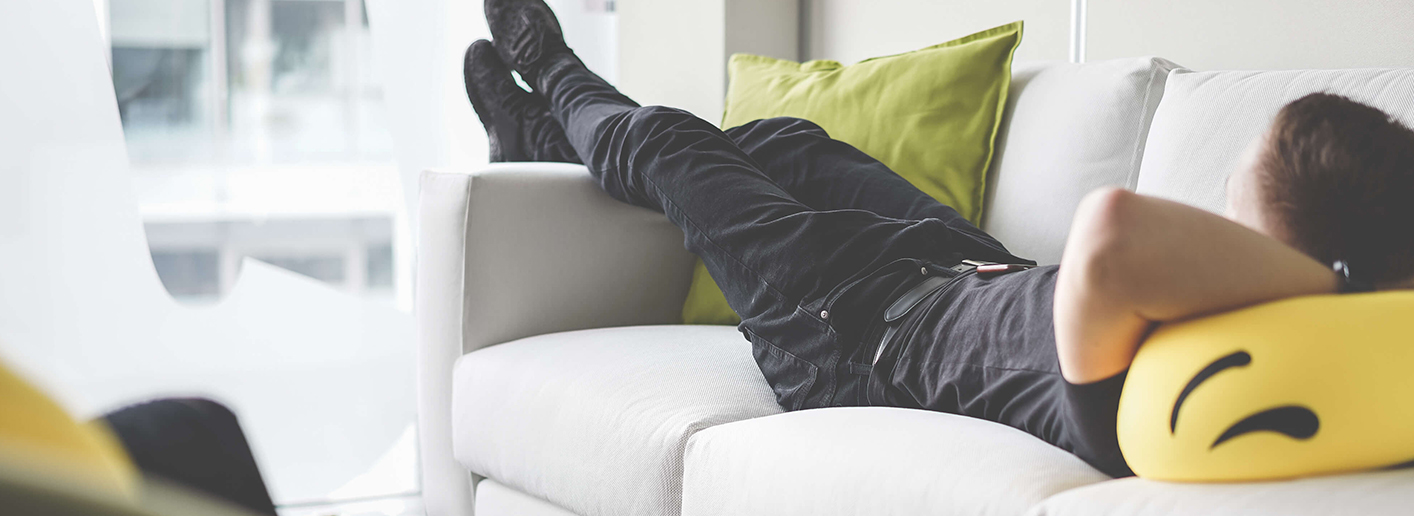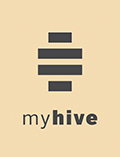How to take meaningful & relaxing breaks | myhive
Taking meaningful and relaxing breaks
Sometimes it may only be for 5 minutes, other times it could be a whole hour. No matter how long a break lasts: it is the base to be able to work efficiently. Below we want to provide you with useful information on how you can ensure that your shorter and longer breaks are meaningful and benefit your body and mind.
Why breaks during work are important
Since our schooltime, it has been ingrained in us that taking breaks regularly is important. We use these breaks to regenerate and ensure that we are able to continue our work with new and fresh energy. Regardless of whether you are engaged in a physically or mentally demanding job – taking a break should always be part of your everyday work. However, a meaningful break culture is not always adhered to. Many employees or self-employed people ignore the recommendation to take time off work regularly or to make time for resting phases. This can result in serious health consequences and may also negatively impact the quality of their work.
But what is a break and how long does it last?
By definition, a break is understood to mean “work interruptions of various lengths that occur between two periods of work occurring in a work shift and serve the recreation of the worker” (source: Graf, Rutenfranz & Ulich, 1970, p. 250).
If you want to treat yourself to a little break you can take short periods of 5-10 minutes where you, for example, can meet up with colleagues in the coffee kitchen or go out and catch some fresh air. However, a real break, which ensures noticeable recovery, usually doesn’t begin until after 10 minutes have passed.
It can also be said that even those who take a supposed “break” are not necessarily doing something good for their own regeneration. This occurs because we often spend our breaks on smartphones, reading emails or checking the news on social networks. Unfortunately, we are continuously ignoring screen abstinence, which is a break that is so badly needed for our eyes and brain. Therefore, in order for you to properly utilize your break and to regenerate as best as possible, we’d like to share with you the following ideas to organize and get more out of your break:
Break tip Nr. 1: Make your breaks varied and individual

Although it may seem convenient to follow the same break ritual every day, it is a good idea to regularly come up with new ideas for the little breaks between your two work phases. For example, if you spend every lunch break in your office kitchen, try switching it up by packing your lunch and sitting in the park alone or with your colleagues. Since topics of conversation often revolve around current projects and work topics during breaks, a break from your colleagues may be a good idea once in a while as well.
Break tip Nr. 2: Move around and mobilize your body
Anyone who sits at their desk non-stop during work puts their body and especially their spine, in an unhealthy forced position that can lead to long-term pain or tension. Using your breaks to move your body and incorporate little stretching exercises is beneficial to your health and ensures a refreshed mind.
If your work demands you to be in constant motion and physical activity, a short relaxation period or an active rest such as yoga, which includes gentle stretching, can be very useful.
Free YouTube videos provide a valuable source of information and guidance. Simply search for “5-minute yoga” or “5-minute workout”.
Break tip Nr. 3: Eat a healthy diet

While a quick snack from the food truck or a delicious portion of French fries from a fast-food restaurant may seem tempting, ask yourself, do they really make you feel full? Junk food should be the exception during a break. After all, those who exert their body and brain for hours need nutrient-rich foods to replenish their energy storages. Wholegrain products, fruit, vegetables, and sufficient liquids in the form of water and juice spritzers are particularly suitable for maintaining a healthy diet. Foods that should not be on the menu are difficult to digest and fatty foods such as hearty casseroles, burgers, etc. If your stomach is too busy digesting your body will have less energy available for your brain to function properly.
If you do not have the opportunity to buy healthy food at work, what is known as "meal prepping" is recommended. You plan your meals for yours breaks in advance and pack a lunch box at home. When it is time to leave for work you take out the food items from your fridge and make your way out the door. With this method you can save money and ensure less waste that occurs with take-out snacks from the supermarket.
Break tip Nr. 4: Power napping

Have you ever heard of power napping? This short period of sleep of max. 15-20 minutes gives your body the sufficient energy needed to power through the rest of your working day. You can train yourself to fall into a relaxed sleep state quickly, ideally in a quiet place where you will not be disturbed. Your desk in the open plan office is therefore not a recommended choice. This could be solved by finding an unused room at your workplace, that you and your colleagues could agree on turning into a room for taking short naps.
You can create a pleasant sleeping atmosphere with quiet music, darkened windows and a comfortable lounger or seat. Sofas, comfortable, upholstered chairs or a yoga or exercise mat with a pillow on the floor are perfect for creating an ideal setting.
An important side note: In order for you to be able to sleep well at night, you should under no circumstances take a power nap after 4 p.m. if you have a job that you do during the day.
Break tip Nr. 5: Adhere to break times during home office

Ever since the corona pandemic has become so present, many people have turned to working within their own four walls. During this time at home, you quickly fall into a different work rhythm and forget to keep break times to which you were bound by while at the office. This is partly due to the fact that we do not have colleagues that remind us of joint breaks as well as not having a clear boundary between work and private life.
It is therefore even more important to maintain a regular working day while in home office. This can be done by using a timer, e.g. the Pomodoro Timer, which reminds you of your scheduled break times. Make sure to switch off your computer every now and then and be sure to fill your break with pleasant activity, fresh air, and healthy food.
Conclusion on organizing your breaks:
In order to continue giving your best at work your body and mind need regular breaks. Use this time for things that are comfortable for you and that help to relax your eyes. In addition, make sure you adhere to break times and eating a healthy diet. This is how you can ensure that you maintain a continuous stream of energy needed for your working day and long-term health.
Doriți să știți mai multe despre myhive?
Rezervați o vizită pentru a afla mai multe.
